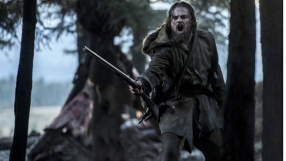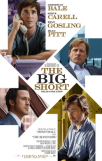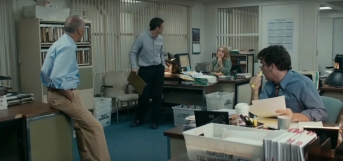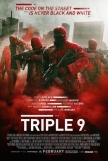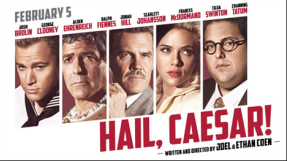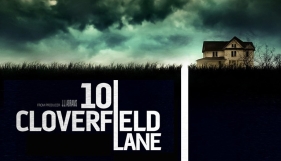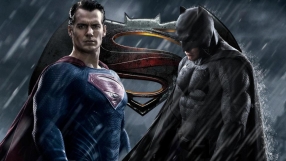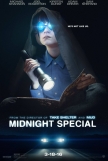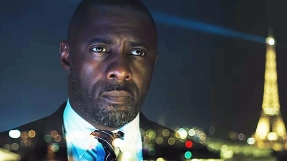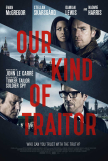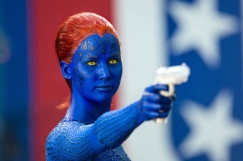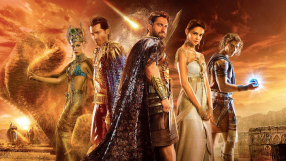Last year was a vintage year for cinema, and as a result, was always going to a hard act to follow. 2015 was the year we got Selma, Whiplash, The Theory of Everything and a proper new Star Wars film.
So this year had a lot to live up to, and it's probably no surprise that it hasn't quite hit the same mark. However, among a fair amount of mediocrity, there have been some truly wonderful cinematic moments, and also plenty of films which have either subtly or explicitly addressed ideas of faith and theology. So in what's becoming my favourite Christmas tradition, may I present a rundown of the year in film: the highs, the lows, and the moments where I unsurprisingly saw it all as an allegory for the death and resurrection of our Lord and Saviour.
January
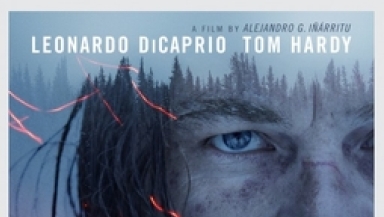
The first month of the year is always a cinematic treat for British audiences, given that we get most of the Oscar hopefuls a couple of months later than our American cousins. That means the year started with The Revenant, a Garden of Eden story about the sins of American colonialism, featuring Leonardo Di Caprio in one of the most brutally memorable 'resurrection' sequences ever committed to film. Hot on its heels came The Big Short, a film so concerned with being cleverly written that it forgot not to be horribly sexist. An otherwise great ensemble piece explores the evils of banker greed and helpfully explains the mid-2000s financial crash, before worryingingly suggesting that the world isn't learning from that old Biblical adage about the love of money. Breakout success Room was a gruelling but ultimately-uplifting story about abduction and imprisonment, which includes some thought-provoking ideas around perspective (to the child born in a single room, that's the entire world). Yet even better than all of those was Spotlight, the Oscar-grabbing drama about a team of journalists who uncover scandalous and horrifying child abuse in Boston's Catholic churches. And what might have been a damning indictment of Christianity managed to draw a helpful and nuanced line between God and some of his followers.
February
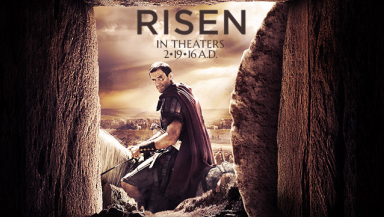
One of 2016's most controversial films was Deadpool, a sweary, sexualised take on the superhero genre which reopened the old debate about what Christians should and shouldn't watch. Joseph Fiennes' sword, sandals and centurion epic Risen would have been firmly in the former camp for many believers, but unfortunately it failed to break the curse of faith-friendly cinema (although it wasn't 2016's worst Christian movie by a long way). It was also a better movie, at least in this reviewer's opinion, than the Coen brothers' Hail Caesar! – a smug mess of a film, feted by critics but not audiences, and with which Risen shares some unexpected DNA (both centre on the story of the centurion who witnesses' Jesus death). Two other films this month had significant sermon applications: Taron Egerton's turn as the eponymous Eddie the Eagle was a great illustration of perseverance, while the better-than-expected Triple 9 gave a chilling insight into the consequences, and the cyclical nature, of sin.
March
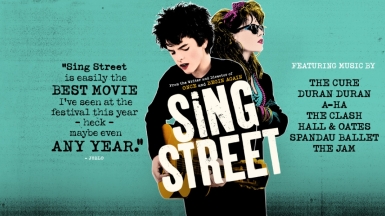
A traditionally weak month for cinematic releases was illuminated by the truly brilliant Sing Street, a foot-tapping 1980s nostalgia piece that makes every viewer's life better by its mere existence. And 10 Cloverfield Lane – which appeared almost completely unannounced – was both reassuring proof that secrets can still be kept, and a great bit of thought-provocation around how each of us should live our lives in an age of instability. March also saw the much anticipated release of DC Comics' first big response to Marvel dominance in the shape of Batman vs Superman: Dawn of Justice... unfortunately the consensus was that it had somehow failed to live up to the sum of its impressive parts. Released around Easter, it did at least illustrate a thousand sermons around the globe with its helpfully-timed and highly-divisive central messiah figure. Zootropolis (or Zootopia in the US), provided the big Easter holiday kids' hit, but that's not to suggest it didn't pack a punch with all ages; as an allegory for racial division it couldn't have been more apt or timely.
April
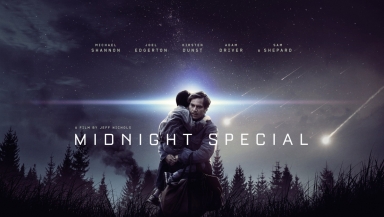
The year's first great blockbuster arrived in the shape of Captain America: Civil War, one of the very best Marvel Cinematic Universe movies to date, and a stark reminder to Batman & Co that this is how it's done. It's not the deepest or richest work of art you'll ever come across, but it did have some interesting things to say about how the battle between good and evil isn't always straightforward, and a couple of truly breathtaking moments to boot. It wasn't the month's only top-drawer release however; breakout hit Midnight Special was a perfectly paced and ultimately rewarding story about a father's unconditional love for his son. Shot on a modest budget, in its own way it contained moments of true awe and wonder to rival even the Marvel megalith with which it was competing for screen allocations. The Jungle Book got a live-action reboot from Disney but ultimately fell a bit flat despite a gigantic CGI ape voiced by Christopher Walken, and while Hardcore Henry tried to break new ground by presenting a movie entirely from a first-person perspective, it forgot to be any good. Bastille Day was also a pretty poor use of cinemagoer's hard-earned cash, but it provided a much better gospel illustration than God's Not Dead 2, an extraordinary (!) film about evil atheists taking on a Christian school teacher (don't worry, the atheists lose).
May
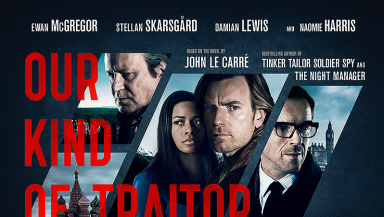
Slim pickings followed: X-Men: Apocalypse drew on Revelation-style imagery to illustrate a story about superheroes trying to prevent the end of the world, but it was the weakest entry in the ensemble series so far. Alice Through the Looking Glass was a so-so sequel to Tim Burton's freakish reimagining of Lewis Carroll, and Our Kind of Traitor was a great object lesson in integrity, a theme also tackled by the George Clooney / Julia Roberts vehicle Money Monster.The latter also offered a challenge to financially motivated Christian TV broadcasters, asking: are we really motivated to fight greed, or to embrace it?
June
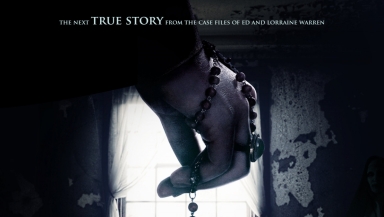
Summer arrived with a real mixed bag of releases, and none of them was hugely inspiring. Anti-rom-com Me Before You rightly caused a fair amount of offence with its euthanasia punchline, while Independence Day: Resurgence offended all fans of well-written, intelligently plotted cinema.
Then came Gods of Egypt, a career threatening car crash of a blockbuster, which managed to make religious faith look completely bonkers. Ironically it took a horror movie, The Conjuring 2, to present a compelling opposite view. Like so many horror films, it's set within a universe which makes space for God in order to make sense of evil, but that's particularly intentional in this case because co-writers Chad and Carey Hayes are unashamedly Christian.
That's it for part one, as 2016 sags badly in its movie middle. Fear not however; I'll be back tomorrow with this article's hotly anitipated sequel, featuring even more super heroes, yet another dose of Star Wars, and just for fun, my personal top ten films of the year.
Martin Saunders is a Contributing Editor for Christian Today and the Deputy CEO of Youthscape. Follow him on Twitter @martinsaunders.










